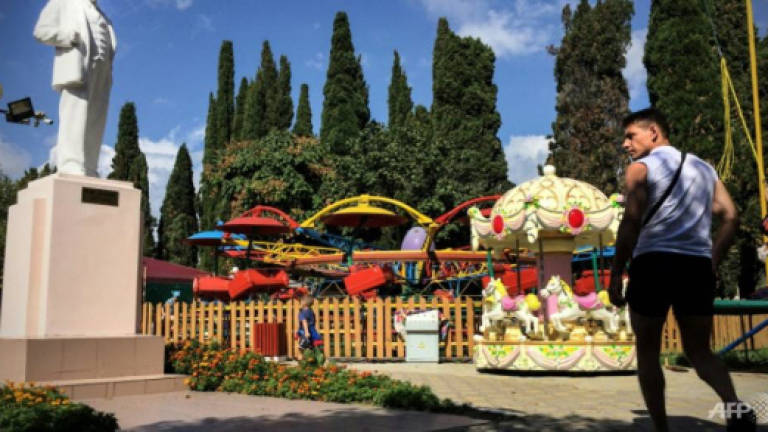No pomp as Russia revolution centenary nears

A century after its revolution shook the world, Russia strives to strike an odd balance between remembering the uprising that brought about the Soviet Union, while stopping short of romanticising regime change.
In a series of seismic events, the year 1917 saw Tsar Nicholas II abdicate in Mar and the Bolsheviks led by Lenin seize power in Oct.
Civil war erupted immediately afterwards, followed by the creation in 1922 of the USSR, built on the ruins of the Russian empire.
A hundred years later, Russia still has trouble dealing with its revolutionary past, with the legacy of the 1917 uprising and the Soviet Union sparking fierce debate to this day.
While the government tries to foster positive feelings towards the Soviet regime, which collapsed in 1991, it also wants to maintain the power and influence of the Orthodox Church.
To sing praises to Lenin, the leader of the revolution, is complicated by his view of religion and clerics as oppressors of the working class.
Throughout the Soviet era, anniversaries of the revolution were marked with pomp on Nov 7 (or Oct 25 according to the Julian calendar used in 1917) – a massive holiday that featured military parades on Moscow's emblematic Red Square.
Today the programme is far more subdued.
The Kremlin has tasked a committee of politicians and clerics – none of them Communists or monarchists – with planning the festivities.
The committee's goal is to "draw lessons from history", build "unity" and learn about how to "peacefully resolve conflicts", said Sergei Naryshkin, who heads both the Russian Historical Society and the foreign intelligence service.
At one of the committee meetings, Naryshkin said revolutions "always bring blood, death, destruction and disaster".
Russians know the true "value of stability", he said, ensuring that revolutionary ideas will not be "imported" from abroad.
'Reds' and 'Whites'
With just over two weeks to go, it remains unclear what events might be planned to mark the anniversary.
But the lesson being drawn in 2017 is clear: to prevent any impulse to contest the political status quo with street protests, especially with just a few months to go before a presidential election in which Vladimir Putin is widely expected to run again.
In power since 2000, Putin has built his power on pillars of stability and traditionalism after the political upheaval of the 1990s, seeking to present himself as a unifying figure for the country's many religions and ethnicities.
"Top leaders of our country have evoked many times that it is necessary to reconcile the 'Reds' and the 'Whites'," said historian Vladislav Aksyonov, referring to the Bolshevik and imperial civil war rivals.
"We need to deal with the painful issues in order to do that. But we can already say that this reconciliation has not happened yet and is unlikely to happen in the near future," he added.
Fear of uprisings
An imperial power before the Communist revolt, Russia has had a tough time grappling with its conflicting histories – and the country's many symbols and monuments are a testament to that.
Tsar Nicholas II and his family, assassinated by the Bolsheviks, were canonised in 2000 by the Orthodox Church.
Meanwhile, the embalmed body of Lenin still lies in its mausoleum beside the Kremlin.
Putin, in his first inaugural speech in 2000, said that it was "the first time in the history of our state that power is handed over ... legally and peacefully", vowing to "unite the people of Russia".
His rejection of popular uprisings has not wavered in the 17 years since he took power, neither within Russia nor beyond.
His government in 2011 and 2012 unleashed a major crackdown on protests, foreign NGOs and independent media accused of espousing "unpatriotic" views.
Russia has also sought to suppress revolts in Ukraine, Georgia and Syria, where Putin's support for President Bashar al-Assad has been instrumental in keeping the regime in power.
The Kremlin has used Kiev's 2014 pro-EU revolution, which led to an armed conflict with Moscow-backed rebels in eastern Ukraine, to scare Russians off taking to the streets.
This seems to have worked. Within Russia, despite limits on freedom of expression and an economic crisis, it appears few people have much of an appetite for revolt.
Around 80% of Russians would not be willing to take to the streets in protest over economic or political issues, independent pollster Levada Centre says. — AFP